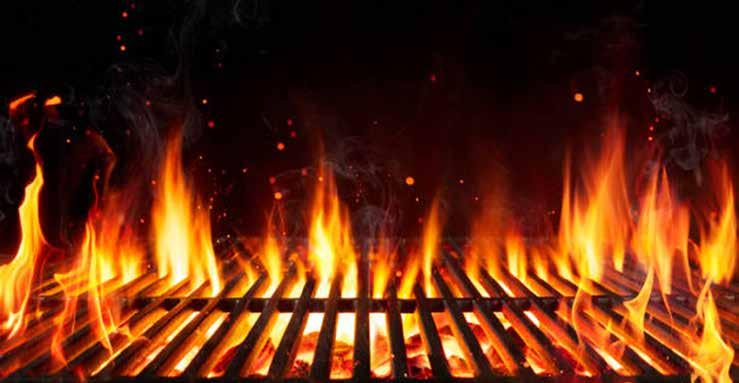3 minute read
BLACK MUSIC MONTH
from CNW June 14, 2023
by cnwmedia.com
Next Article
CHICaGO’S ROBUST ROLE IN AMERICA’S MUSIC IsNDUSTRY Part I
Mare’ Evans Contributing Writer
This year the world of music celebrates 50 years of HIP HOP, so the music is on wherever you go. And Chicago, has always been and remains is a major center for music in the United States where distinctive forms of Blues (greatly responsible for the future creation of rock and roll), and house music, a genre of electronic dance music, were developed and the advancement of Jazz.
The music developed mainly because of the “Great Migration” of Black workers from the South into the then industrial cities of the North, now known as urban cities, such as Chicago in particular, in the first half of the 20th century. Chicago is one of the places where the faster, juicier boogie-woogie emerged from the blues as did Gospel. Yes, even gospel.
Southern Blacks brought with them traditional jazz and blues music, resulting in Chicago blues and “Chicago style” Dixieland jazz. That’s not shocking when you note that its blues artists included Muddy Waters, Junior Wells, Howlin’ Wolf and both Sonny Boy Williamsons; jazz greats included Nat King Cole, Gene Ammons, and Bud Freeman. Chicago is also well known for its soul music. Chicago in the middle, land bound brought a different perspective to the music as it continues today.
Chicago is one of the places where the faster, juicier boogie-woogie emerged from the blues. The most renowned early recordings of boogies were made in Chicago with Clarence Pinetop Smith, who might have been influenced by the brothers Hersal Thomas and George W. Thomas from Houston, who were together in Chicago in the 1920s.
Chicago blues and boogie music continues to be popular today with the annual Chicago Blues Festival, that presented super star last weekend and with great appreciation of the musicians such as those previously mentioned plus and Willie Dixon; guitar players such as Tampa Red, Buddy Guy, Bo Diddley, Elmore James and Lefty Dizz.
The most renowned early recordings of boogies were made in Chicago with Clarence Pinetop Smith, who might have been influenced by the brothers Hersal Thomas and George W. Thomas from Houston, who were together in Chicago in the 1920s.
An important personality to the Blues, Gospel, and Chicago Thomas Andrew Dorsey, known as the Father of Gospel American songwriter, singer, and pianist, known as the of “Father of Gospel Music,” began as a Blues artist whose many up tempo Blues arrangements of gospel music earned him that title.” Dorsey was introduced as childhood to blues pianists in the Atlanta, Ga., area and worked in secular or hokum music (--a most degrading description of such an important music) as a composer, arranger, pianist, and vocalist from 1910 through 1916. After attending the College of Composition and Arranging in Chicago 1928 he toured with Ma Rainey, “mother of the Blues, ” recognized as the first great professional Blues vocalist.
From 1929 until his death Dorsey worked exclusively within a religious setting, consciously applying blues melodies and rhythms to spiritual concerns. Though he no longer played the secular circuit his understanding of the emotional cadence of Black people inspired and moved him to express himself through music capturing that same feeling that came through the Blues.
Gospel music gained popularity momentum in Chicago the 1930’s because of Dorsey’s work.
In the 1980s and 1990s, heavy rock, punk and hip hop spread widely in Chicago. Orchestras in Chicago include the Chicago Symphony Orchestra, the Lyric Opera of Chicago and the Chicago Sinfonietta.
Popular on the radar is House music which originated in a Chicago nightclub called The Warehouse. And regardless of other claims, Chicago house is the earliest style of house music. Recently it was dubbed that Beyonce started ‘House music. . . rumors that it emerged from Latino roots and more. So, the dispute is on, but Chicagoans know. The origins of the name “house music” are unclear, but the most popular belief is that came from the place where it began—The Warehouse.
The popular word accepted is that DJ Frankie Knuckles originally popularized house music while working at The Warehouse. Knuckles is the man often referred to as the godfather of house.
It is thought in some spaces that House, more than any other form of Black music, has birthed many offshoots and spread its sound throughout the music world but blues is also a heavyweight in the influence of music genres. So, House music has influenced, other genres in some capacity.
The actual music developed in the houses, garages and Chicago clubs and was initially for local club-goers in the “underground” club scenes, rather than for widespread commercial release. As a result, the recordings were much more conceptual, and longer than the music usually played on commercial radio except for the early jazz tunes by Coltrane, Monk , and the music by AACM Great Black Music musicians and the like.
House musicians created their music using analog synthesizers and sequencers while arranging the electronic elements and samples on their tracks, combining live traditional instruments and percussion. The takeaway is the prevalence of four on the floor beats in dance music is largely derived from house.
This year 2023 some of Chicago’s creatives creators were highlighted at the Grammys like House Music man, Terry Hunter for Best Remix of Beyonce’s “Break My Soul.” Others like Matt, Global music artist; Johnathan McReynolds, and some like Sir William James the Baptist brought home a Grammy for Gospel Album for Best Roots album, “The Urban Hymnal’ and J. Ivy for the Best Spoken Word Poetry Album-“The Poet Who Sat By the Door,” win this year big time. Be very clear that Chicago remains ‘in the the room at the forefront.’









